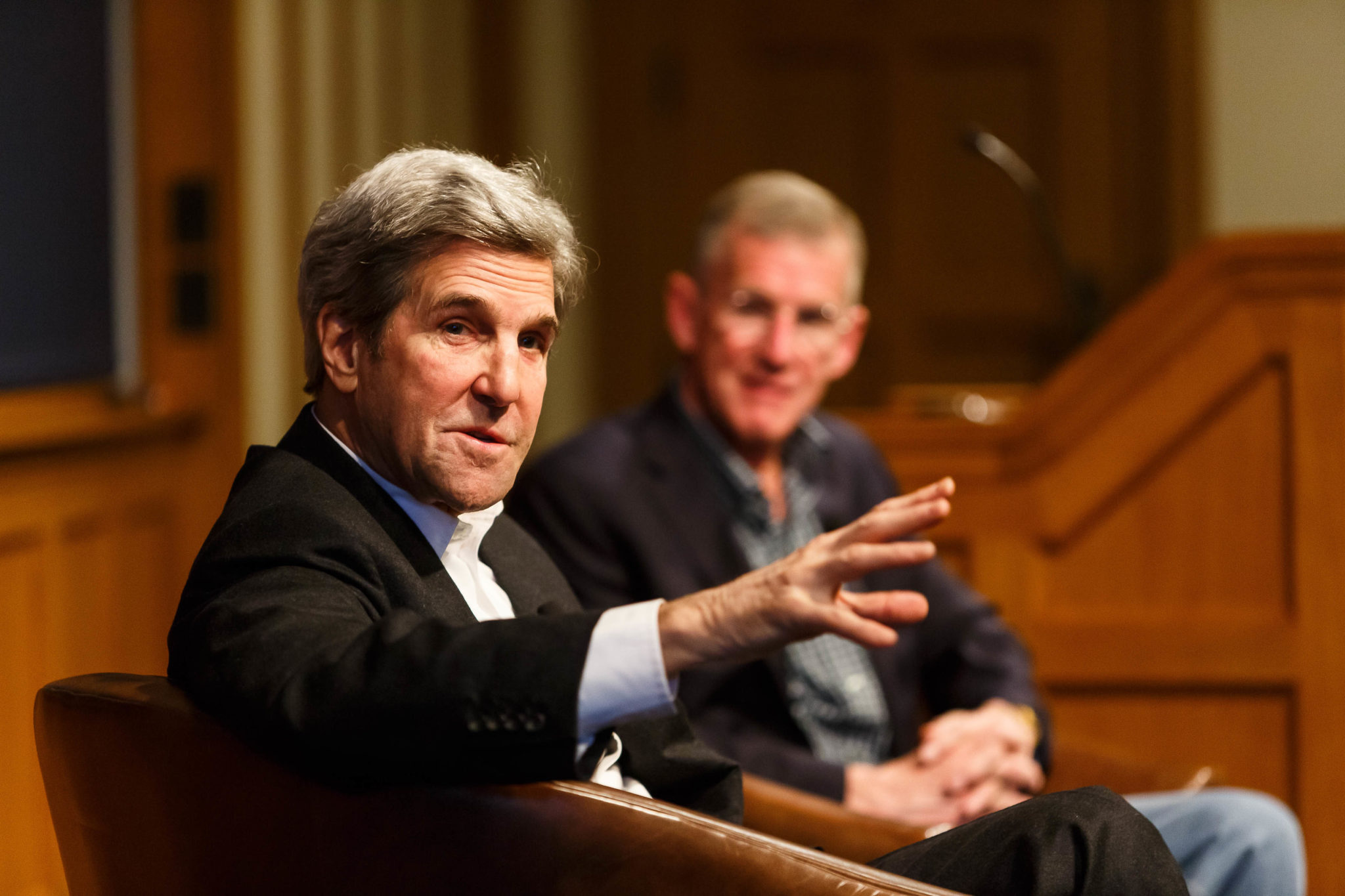
Tony Fiorini
Former Secretary of State John Kerry ’66 and retired Army Gen. Stanley McChrystal have grappled with the issue of terrorism throughout their professional lives. And on Friday, the two men discussed counterterrorism efforts and their views on the current world order at an event hosted by the Jackson Institute for Global Affairs.
Kerry and McChrystal, who are both senior fellows at the Jackson Institute, spoke for an hour and a half in front of an invitation-only crowd about their personal experiences with the issue of terrorism. The event was also livestreamed around the world.
McChrystal, who served as the head of U.S. forces in Afghanistan, spoke at length about the necessity of integrating military and diplomatic efforts to deter extremists.
“Special operating forces are going to have to be joined at the hip with our diplomats,” he said. “They are going to have to speak the language and know the people. That might take a lot of time and pain. We might have to spend time in places where there isn’t a war going on but there could be at some point. That’s sometimes dreary and painful but the payoff is extraordinary in the long term.”
Kerry underscored the point by invoking former Secretary of Defense Robert Gates, saying that if the U.S. is not ready to provide funding and fight for diplomacy, it will need to buy more bullets.
Kerry noted the difficulty of these preventative and allegiance-building measures. While homeland security officers and law enforcement agents need to “get things right” at all times, he explained, terrorists and extremists only need to be successful for an hour.
He also emphasized the fact that extremist groups act very differently than countries antagonistic toward the U.S.
“As dangerous as the world is, I don’t think Putin or Kim Jong Un is looking for annihilation,” Kerry said. “But … terrorists don’t think that way. They are a different kind of enemy and a different concept. Death, in many ways, is better for them. Special forces will be the key to our ability to be safe and help our allies and stand by people.”
A key part of maintaining allies is making it clear that the United States is a long-term strategic partner, McChrystal said.
The United States’ inability to do so weakens it dramatically and emboldens its foes, he added.
After the event, organizers and attendees praised Kerry and McChrystal, commenting on the immediate relevance of the issues under discussion.
“I think that bringing expertise of Jackson Senior Fellows [like Kerry and McChrystal] onto campus is a wonderful complement to courses taught by more traditional academic faculty,” said Jim Levinsohn, the director of the Jackson Institute.
Issues relating to counterterrorism are “highly topical, and it’s fantastic to get leaders from the diplomatic and the military spheres leading a conversation,” he added.
Eamonn Smith ’21, a prospective history major who tuned into the livestream, said he appreciated that the two experts brought their experiences into the conversation.
“I am constantly impressed by the fact that I go to a school where, on an average Friday, we have the ex-secretary of state and a retired general speaking about decisions and strategies they themselves helped create,” he said.
Asked why Jackson decided to livestream the event, Levinsohn said the institute hoped the broadcast would “allow a wide range of folks from around the globe to see what a great event [it was].”
The Jackson Institute for Global Affairs was established in 2009.
Skakel McCooey | skakel.mccooey@yale.edu







